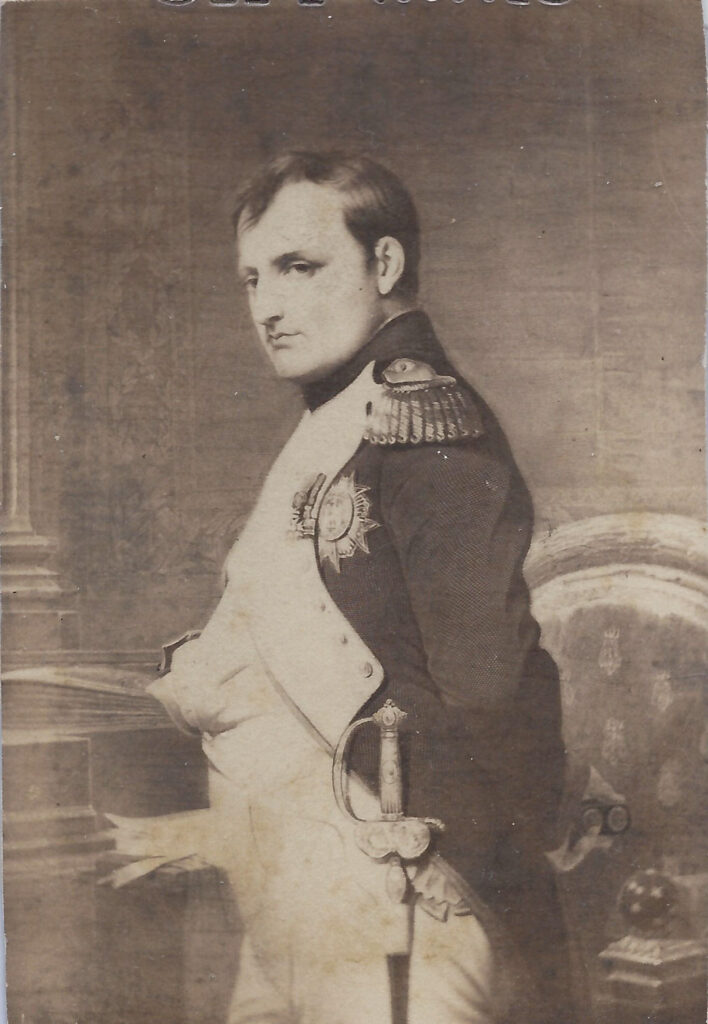Section #3 - Foreign threats to national security end with The War Of 1812
Chapter 19: Napoleon Becomes First Consul In France
July 28, 1794
Robespierre Is Guillotined As The “Reign Of Terror” Ends
By March 1793 Robespierre has declared war on most of its European neighbors and Britain, driven the moderate Girondist faction out of the government and begun what will be known as the proletariat Reign of Terror.
In the Place de la Concorde, aristocrats are beheaded daily to the sounds of cheering crowds.
But soon enough this domestic chaos spins out of control and Robespierre’s rivals arrest him. They then decapitate him, face up on the guillotine, on July 8, 1794.
At this point, the Revolution enters its second stage, lasting from 1794 to 1799.
November 10, 1799
Napoleon Ascends To Power

The Constitution of 1795 is approved, and establishes a government consisting of 750 legislators led by a rotating “Executive Directory” of five senior men, one retiring each year.
Not all factions support this outcome, especially the pro-Catholic forces who resent the Revolution’s virulent attacks on the church. They band together with Royalist forces and march on Paris with a force of 30,000 men, including 2,000 troops from Britain.
The Directory is ill prepared to counter this threat.
In desperate straits, they turn to a 26 year old artillerist, recently promoted to Brigadier General for his daring campaign in December 1793 that drives the Royalists and British out of the Mediterranean port city of Toulon.
The soldier’s name is Napoleon Bonaparte.
On October 5, 1795, Napoleon assembles 40 cannon, places them strategically throughout Paris, and fires grape-shot into the Royalist troops, routing them despite being outnumbered by 6-1 in man-power.
For this feat, Napoleon immediately become a national hero. He has calmed the internal struggle for power within the French capital, and now turns his attention to the foreign wars under way beyond its borders. He is named Commander of the Armee d’Italie, and heads off to win four years’ worth of victories abroad.
On November 10, 1799 he will return to Paris, stage a coup that ends the “Revolutionary period,” and makes himself First Counsel and head of the French Republic.
The French Revolution: “Second Stage” – 1793-1795
| 1792 | France declares war on Leopold II’s Habsburg monarchy (April 20) |
| Frederick II and the Kingdom of Prussia joins Leopold’s side | |
| Tuileries Palace stormed and Louis XVI imprisoned | |
| 1793 | Louis Capet XVI is guillotined (Jan 21) |
| Jacobin Party and Robespierre take control of the government | |
| France declares war on Britain and Holland (Feb 1) | |
| France declares war on Spain (March 7) | |
| Girondist (moderate) faction expelled from National Assembly | |
| Robespierre’s Reign of Terror begins (September 5) | |
| Marie Antoinette guillotined (Oct 16) | |
| Napoleon wins fame at Siege of Toulon (Dec 18) | |
| 1794 | Robespierre arrested and guillotined (July 28) |
| The Executive Directory (5 men) takes control of government | |
| 1795 | Napoleon Bonaparte quells Paris insurrection (October 5) |
| 1796 | Directory names him C-in-C of the Armee D’Italie (Mar 2) |
| 1797 | Napoleon defeats the Austrians (Oct 17) |
| 1798 | He clashes with Admiral Nelson’s fleet in Egypt |
| 1799 | He overthrows The Directorate & leads France as First Counsel |
Between 1799 and 1815 Napoleon’s France will largely dictate the fate of nations across the globe.